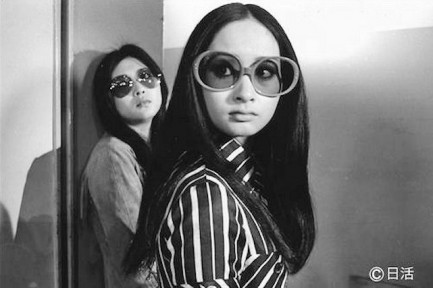| Intl. Notebook | Aug 1 2023 |

The fun pinky violence actioner Nora-neko rokku: Wairudo janbo, aka Stray Cat Rock: Wild Jumbo, premiered today in 1970, so we have for you all the promo images were able to find. You see Meiko Kaji, Tatsuya Fuji, Bunjaku Han, Sôichirô Maeno, and others. We wrote in more detail about the movie at this link.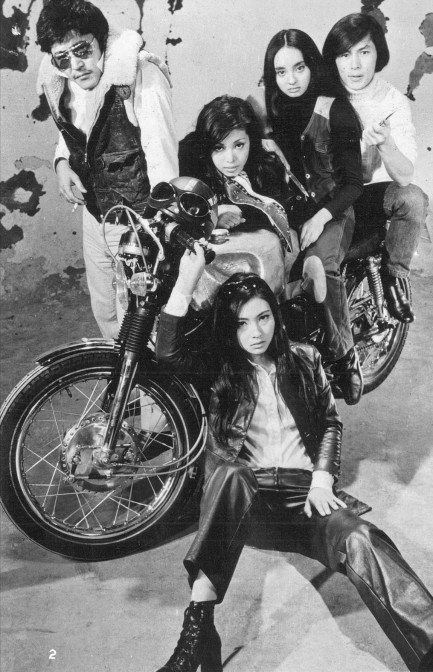
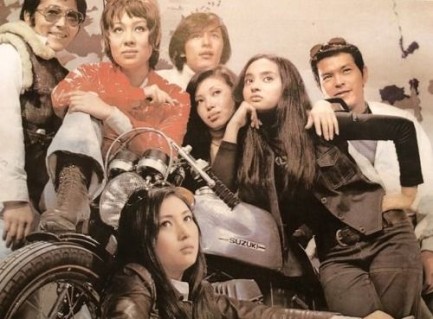
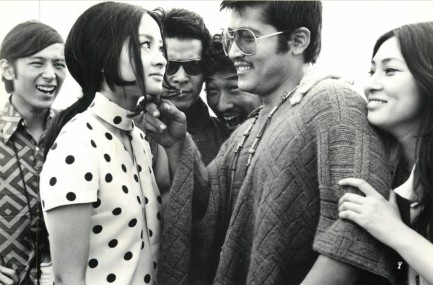
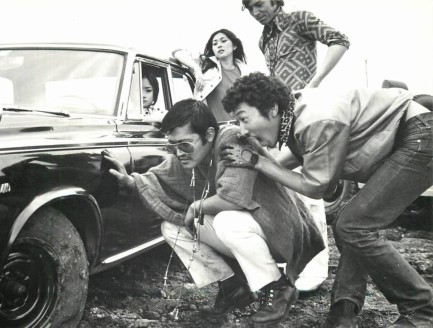
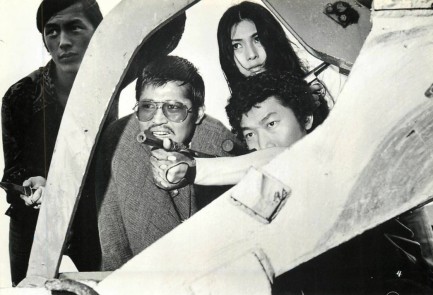
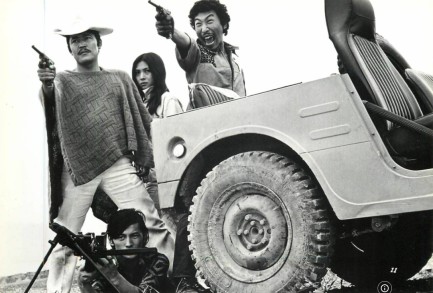
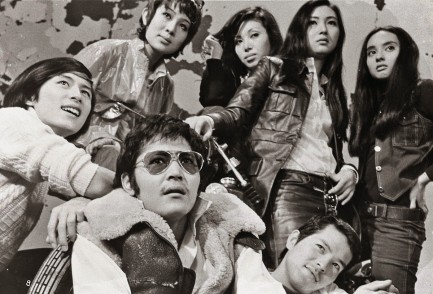
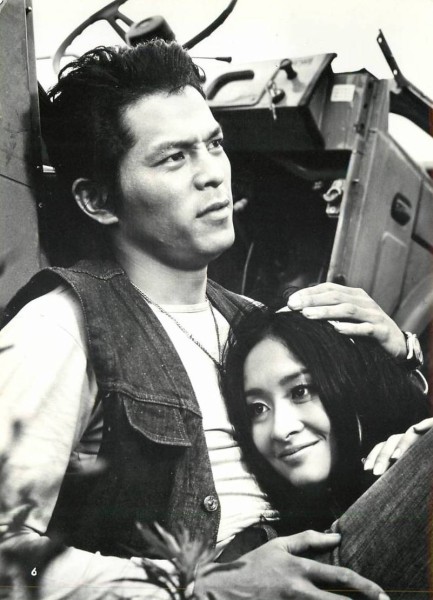
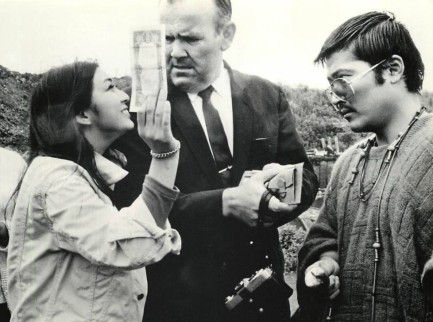
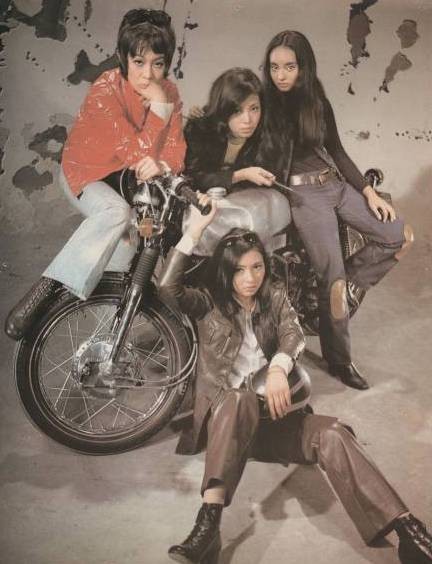
| Femmes Fatales | Jan 13 2023 |

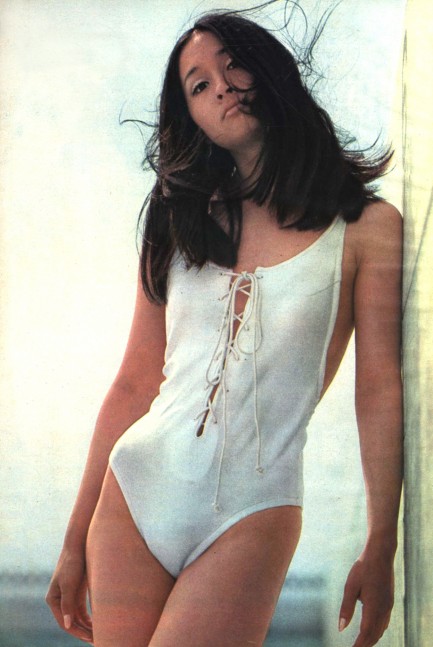
Above is a nice image of Japanese actress Bunjaku Han, who appeared in landmark pinky violence films like Stray Cat Rock: Machine Animal, Stray Cat Rock: Wild Jumbo, and many others, as well as in more obscure fare such as Kawaii akujo, aka Lovely Wicked Woman. Here you see her in a 1969 shot made by Shigeru Izumi and first published in Heibon Punch.
| Vintage Pulp | Aug 1 2020 |

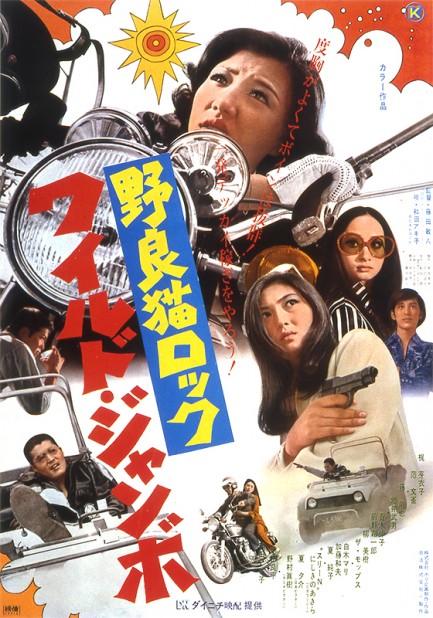
| Vintage Pulp | Aug 1 2018 |

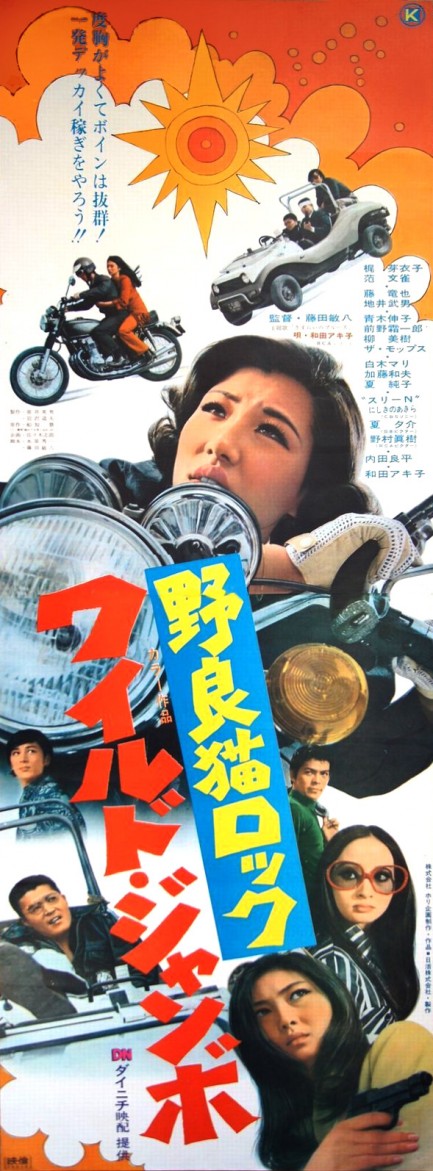
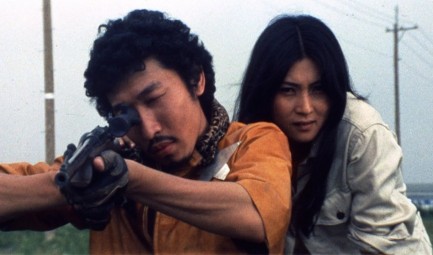
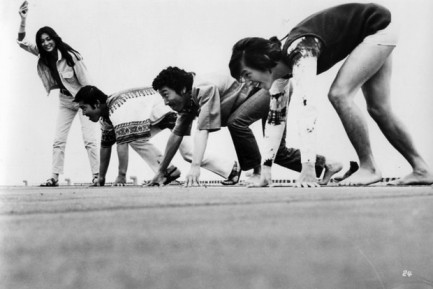
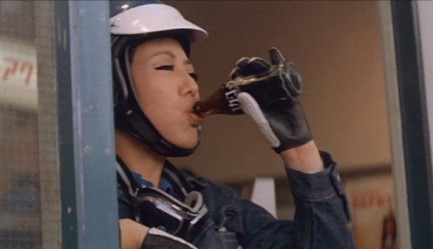
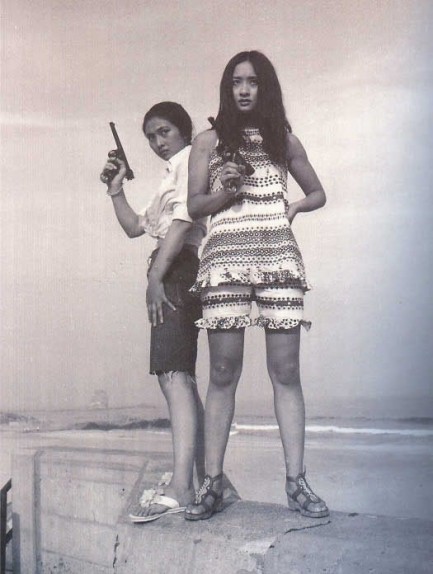
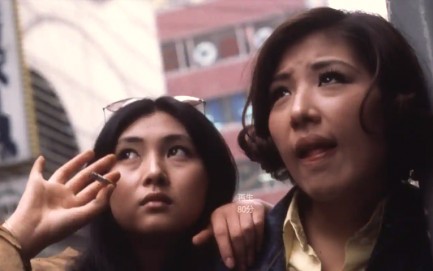
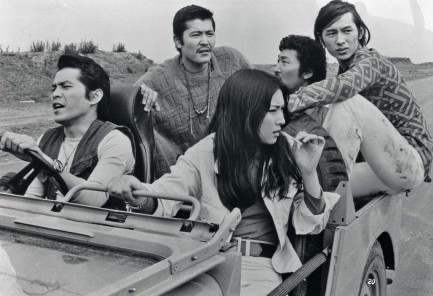
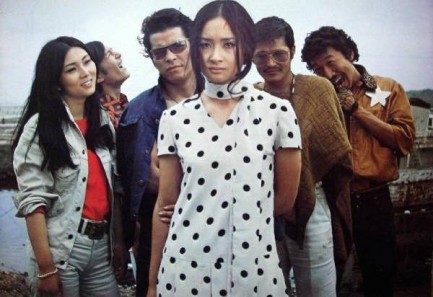
| Vintage Pulp | May 2 2016 |

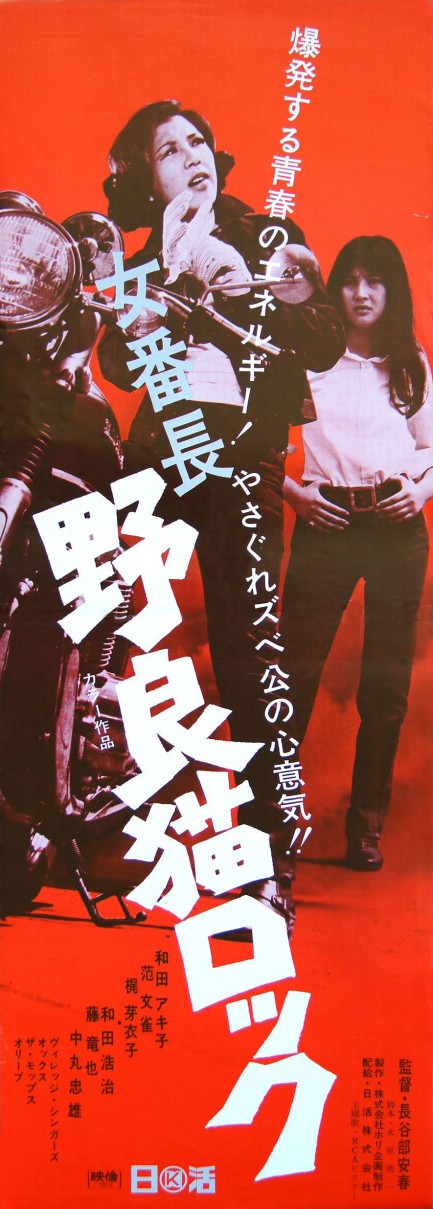
This beautiful and very rare promo poster was made to promote a Japanese film called Onna banchō nora-neko rokku. In the English speaking world its various distributors couldn't seem to settle for long on a title, and it was called alternately Alleycat Rock: Female Boss, Stray Cat Rock: Delinquent Girl Boss, Female Juvenile Delinquent Leader: Alleycat Rock, and Wildcat Rock. It’s the first of five Alleycat Rock or Stray Cat Rock films, and revolves around Meiko Kaji’s girl gang’s unwitting influence over a fixed boxing match. The boxer is supposed to take a dive for a yakuza cartel but instead wins the fight in order to save face with Kaji and her hotties (two of the gang members are played by Bunjaku Han and charismatic pop star Akiko Wada, so we can understand the boxer’s change of heart). But unbeknownst to Kaji, it was her boyfriend who had convinced the yakuza the bout could be fixed in the first place, and now he’s in deep trouble. Wonderfully lensed like so many of these pinku movies, with the requisite grey Tokyo cityscapes, neon splashed nightclub locales, and shots featuring eight or ten characters meticulously packed into the same frame, Onna banchō nora-neko rokku is a nice all around effort. It premiered in Japan today in 1970.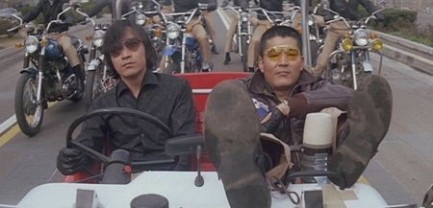
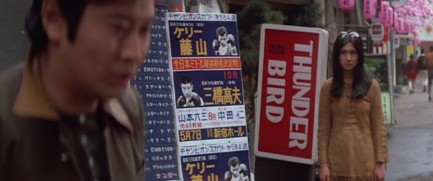
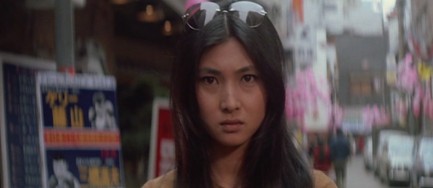
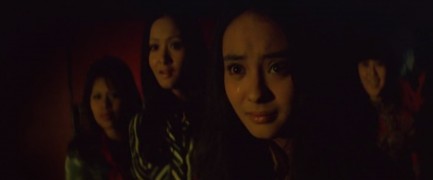
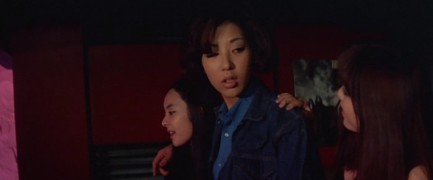
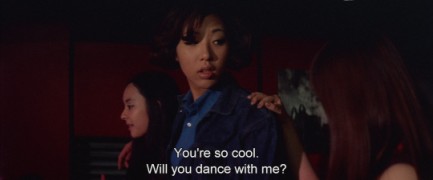
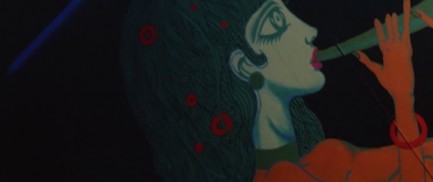
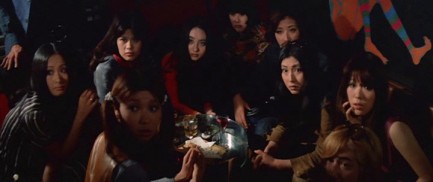
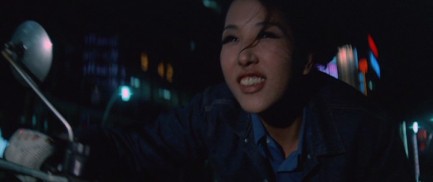
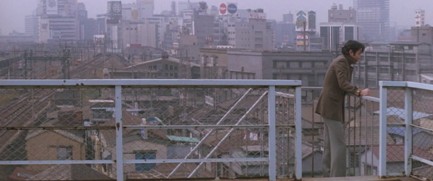
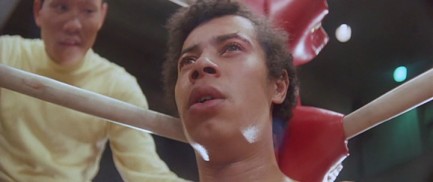
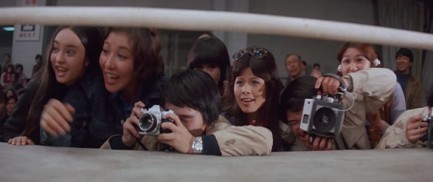
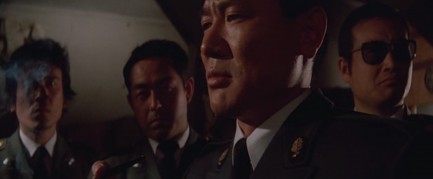
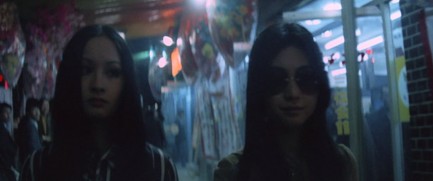
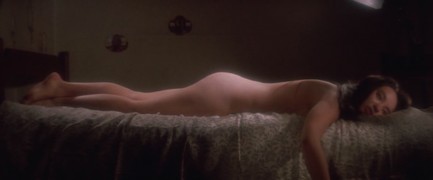
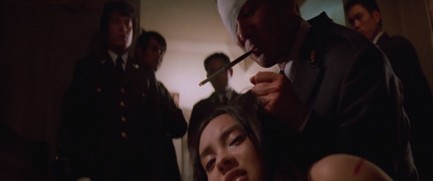
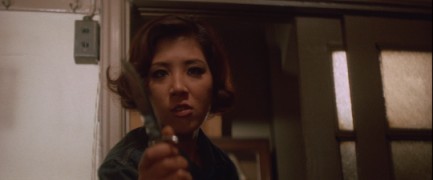
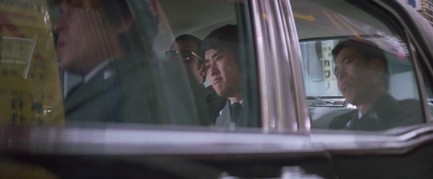
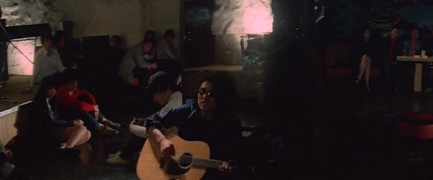
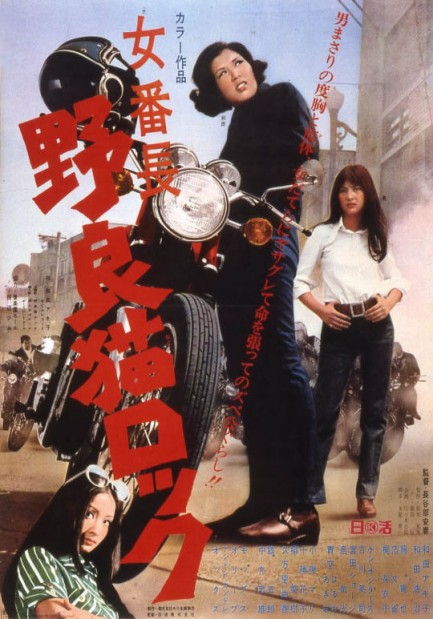
| Vintage Pulp | Nov 22 2014 |

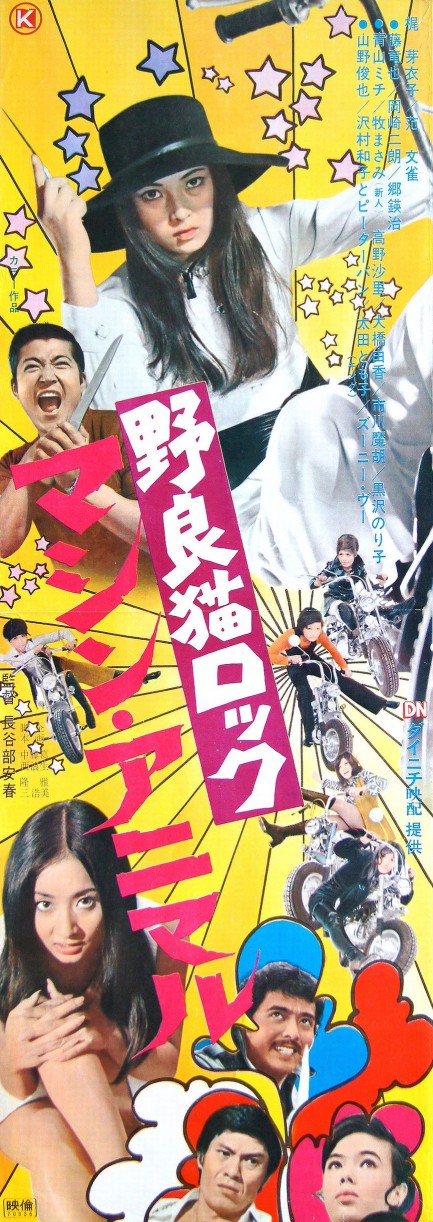
Since we featured Reiko Ike yesterday it seems only right to have Meiko Kaji today. Which of them is the real queen of 70s Japanese action cinema? It’s up for debate. Maybe it’s even someone else entirely. Anyway, you see above and below two posters for Nora-neko rokku: Mashin animaru, known in English as Stray Cat Rock: Machine Animal. It was the fourth of five Stray Cat Rock films, and Kaji starred in all, though as different characters in each.
The series is about juvenile delinquency and takes place against a backdrop of industrial cityscapes and inside the sorts of groovy nightclubs you might associate with Austin Powers. The plot involves Kaji and her cohorts planning to sell stolen LSD in order to help a soldier escape the Vietnam War, but getting entangled with rival gangsters who want to horn in on the deal. It’s very much worth a viewing, and stacks up well against the previous entries. Wild stray cat—you’re a real gone girl. Nora-neko okku: Mashin animaru premiered in Japan today in 1970.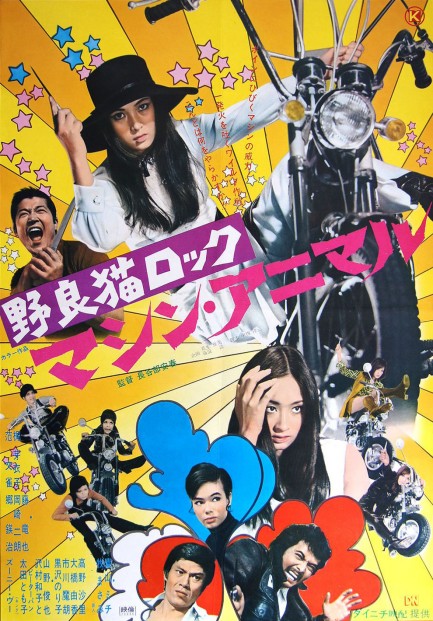
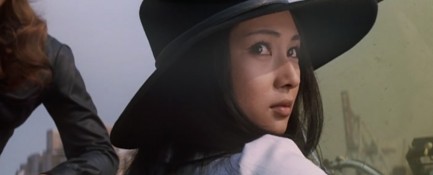
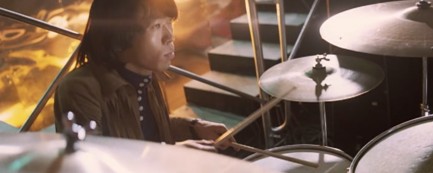
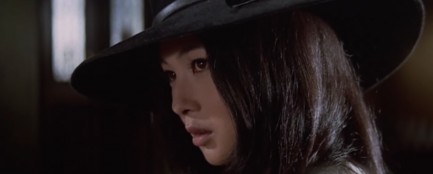
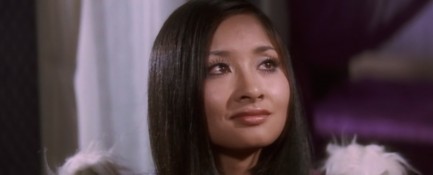

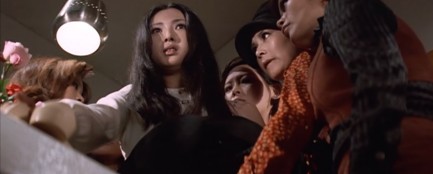
| Vintage Pulp | Aug 12 2011 |

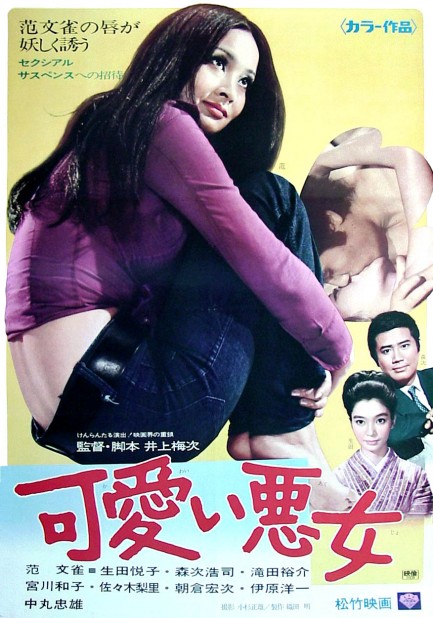
Above is a rare poster for a 1971 Japanese film entitled Kawaii akujo, known in English as The Lovely Wicked Woman, or sometimes The Lovely Bad Woman. You won’t find any info about the production online under the English titles because for some reason all the movie databases we consulted referred to it as Cute Vanity Fair. But trust us, this poster doesn’t say “cute vanity fair”, and we seriously doubt the movie was ever released in the West under that highly dubious title. It actually says "cute villain," and it wouldn't have been released in the West under that title either. Anyway, whatever you call the film, it was directed by Inoue Umetsugu and starred Bunjaku Han in a story of murder and intrigue centered around a tabloid newspaper. Han appeared in about twenty-five movies, including the classic pinku serial Stray Cat Rock, and starred on television scores of times before dying prematurely in 2002 at the age of fifty-four. We’ll have a bit more on her later.